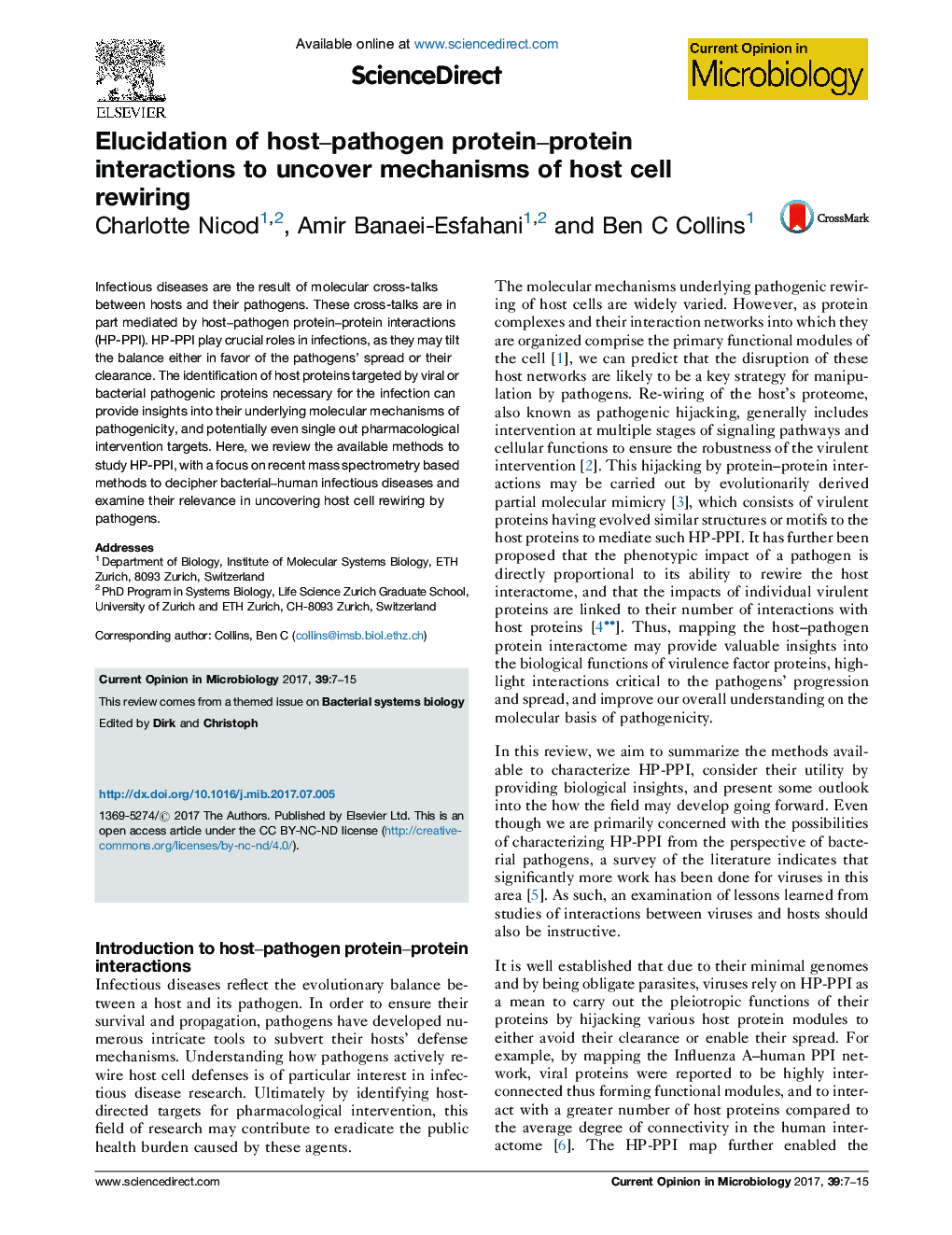| Article ID | Journal | Published Year | Pages | File Type |
|---|---|---|---|---|
| 5671920 | Current Opinion in Microbiology | 2017 | 9 Pages |
â¢Bacterial pathogens rewire host proteomes to enable their replication and spread.â¢Identifying host-pathogen protein interactions elucidates pathogenic rewiring.â¢Protein interaction studies are shifting towards quantitative and unbiased approaches.â¢Bacterial-host interaction studies require endogenous experimental systems.â¢Linking interspecies interaction studies to functional assays can measure their phenotypic impacts.
Infectious diseases are the result of molecular cross-talks between hosts and their pathogens. These cross-talks are in part mediated by host-pathogen protein-protein interactions (HP-PPI). HP-PPI play crucial roles in infections, as they may tilt the balance either in favor of the pathogens' spread or their clearance. The identification of host proteins targeted by viral or bacterial pathogenic proteins necessary for the infection can provide insights into their underlying molecular mechanisms of pathogenicity, and potentially even single out pharmacological intervention targets. Here, we review the available methods to study HP-PPI, with a focus on recent mass spectrometry based methods to decipher bacterial-human infectious diseases and examine their relevance in uncovering host cell rewiring by pathogens.
